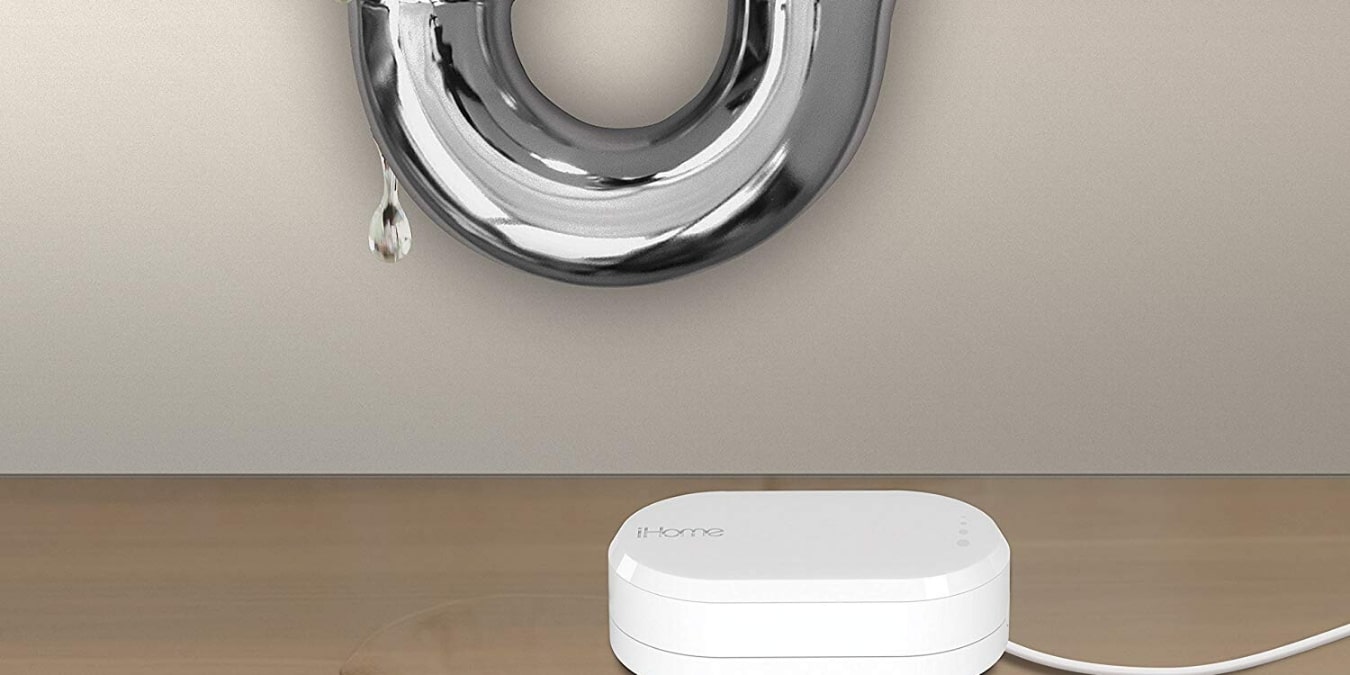
Water damage is one of the most expensive home insurance claims to remediate, and a leading cause of loss in the home. With a smart water sensor though, you can lessen the impact of emergency leaks and reduce damage. It does this by sending you alerts when it detects a water leak somewhere in your home, so it’s easier to keep it water free.
Whether you’re working at the office, at home, or you’re away on holiday, a smart water sensor is an essential tool to have for the safety of your home.
What Is a Smart Water Sensor
A smart water sensor, also known as a flood sensor, is a little gadget you can put in your home around several potential water leak points and it’ll notify you instantly whenever it detects a leak.
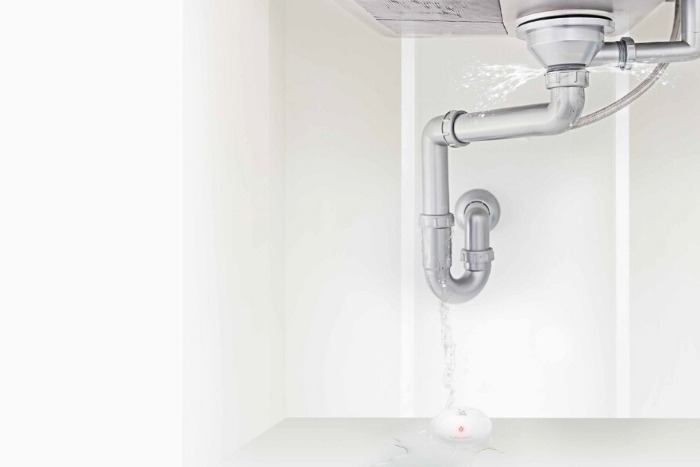
Such points can be a leaky washing machine, a broken pipe, or a water heater that bursts suddenly, and any other crucial moment that may lead to water leaks and damage altogether.
With a smart water sensor, you can add some extra peace of mind to your home as it spots the first signs of water, and sends you alerts so you can know the exact spot you need to work on immediately.
You can find them in a wide range of varieties, but most smart water sensors work using a similar mechanism.
Advantages of a Smart Water Sensor
There are several benefits you can enjoy by having a smart flood sensor in different parts of your home. Among these benefits include:
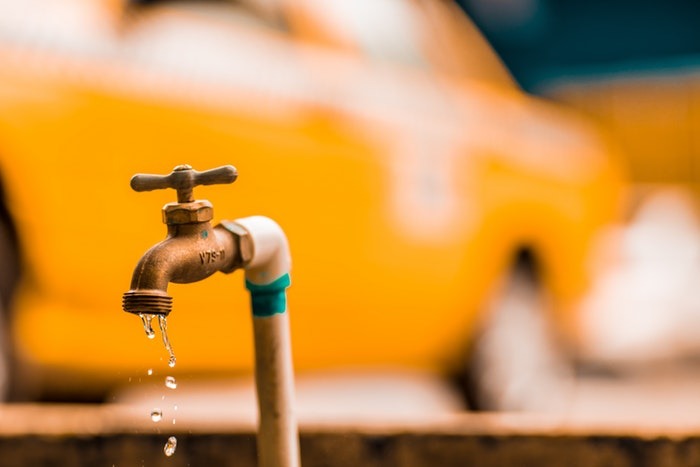
- Better safety: The sensor instantly detects and alerts you of water leaks that could be hazardous (for example causing electrical risks) or cause damage to the structure of your home, contamination or flooded spots.
- Saves you money with less costly damages and repairs, while avoiding the hassles of coordinating the same repairs to your home.
- Instant alerts of possible water leaks and dangers for faster response. The sensor alerts you to reduce risks like mold, warped floorboards, flooding, and others that may build up with time.
- Helps you avoid the loss of personal possessions.
How a Smart Water Sensor Works
Inside most water sensors is the sensor itself and a transmitter, which is placed in a specific range of the sensor so it can send alerts of any leaks it detects.
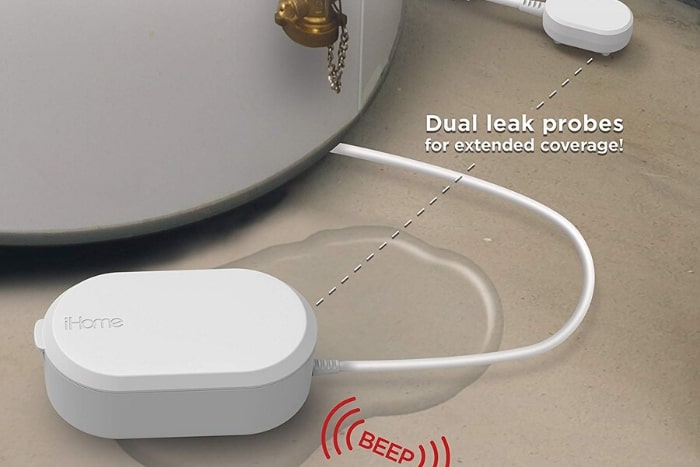
It detects the presence of water once it touches the exposed metal probes, which are part of the device, and when this happens, the sensor measures the electrical conductivity between the probes and the water present.
It’ll then complete a circuit and send off an alarm or signal to you via an app on your smartphone, or, if the installation is monitored by a professional alarm monitoring firm, it’ll send the signal straight to them.
If you want the water sensor to send the alerts to other people when you’re away from your home, you can add them to receive the alerts of any leaks, so they can prevent further damage quickly.
There are water sensor systems that you can program to shut off the water to your home and prevent smaller leaks from becoming a huge mess. Before you install one such device, check with a qualified professional.
Where to Install or Place a Smart Water Sensor
You can install a smart water sensor anywhere there are potential leaks such as a toilet, laundry room, the refrigerator or next to your dishwasher. However, your provider’s installation instructions will have listed the spots to avoid setting up the sensors, as some can’t be placed outdoors or on carpets.
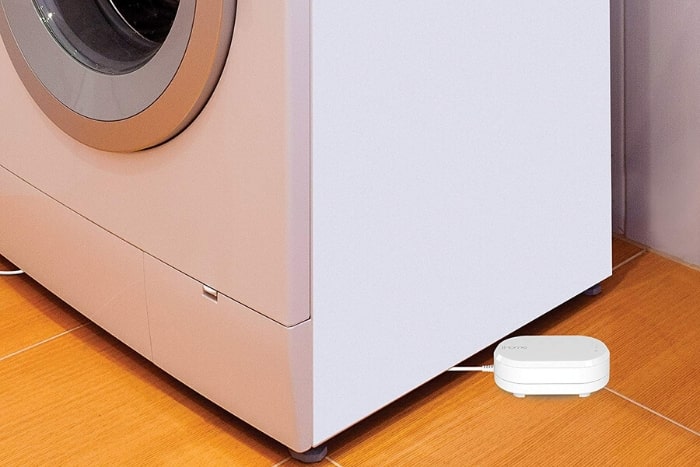
Other places you can install the smart flood detector include near hot water heaters, washing machine, water supply lines, ice maker, and any other areas where water damage can occur in the home.
Make sure you regularly check for corroded or rusty and damaged water supply lines, and perform regular maintenance on those areas before a leak happens.
You don’t need too many water sensor detectors, but the number depends on the potential water damage and your home in general. List down the areas you want to monitor and then connect the sensors to cover large areas, or add a sensor cable to expand its detection capability.
Wrapping Up
A smart water sensor may seem like a lofty or unnecessary device, but its benefits outweigh any considerations you may make before getting one. It’ll save you on costs in the long run, including running up a huge water bill because of leaks that you can avoid by installing one.







